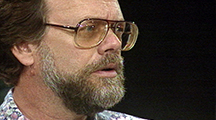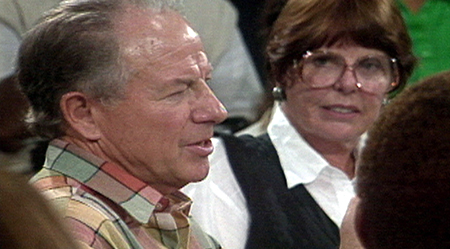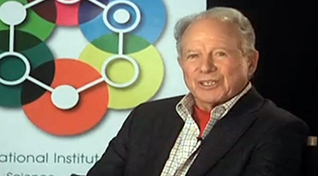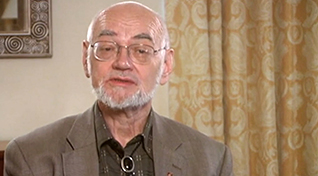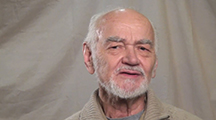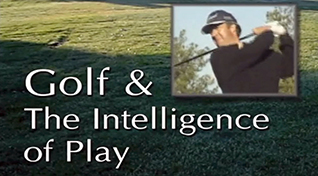Play is Learning with Joseph Chilton Pearce
Play is Learning is one of the best introductions to Joseph Chilton Pearce, one that embodies a number of his fundamental themes: ages and stages of development, the model imperative, the difference between real learning and conditioning (the behavior modification and training we call schooling) and how authentic play represents natures design for optimum learning and performance, at any age, meeting any challenge.
Play Segment
- The absorbent mind of the child and they do this through play
- The essential safe place
- Imagination is the foundation for symbolic and metaphoric thinking
- Not given the safe space they close up and defend against a world they can't trust.
- A child only their own will never compete.
- There is no growth in defense.
Imagination & Play with Joseph Chilton Pearce
It was Einstein who said that imagination was more important than knowledge. He understood that our greatest discoveries and most profound works of art have come to us through imagination and play. Far from being idle day dreaming, the fantasies of childhood, build the foundation for all higher learning.
Original Play with O. Fred Donaldson
Fred coined the term “original play” to describe his 50 years of direct experience and research with children and wild animals. His playmates include special needs children, gang members and street and refugee kids, prison inmates, cancer patients, dolphins, whales, lions, grizzly bears, wolves, baboons, and butterflies. He travels extensively but spends much of his year in Sweden, the United States, Poland, and South Africa. Recent travels include the Czech Republic, Namibia, Brazil, Singapore, Bali, Lebanon, and Bahrain.

Play Segment
- Contest vs Original Play
- My Value in A Contest Culture
- When Winning Replaces Sharing
- Safe Enough to Play
- Everyone Is Caught in The Contest
- To Culture Play is a Waste of Time
- There's No Time-out Outside of the Contest
- There is Another Kind of Play That is Not Contest
- More on Safe Enough to Play
- Play: A Unique Quality of Relationship
Play Deprivation with Stuart Brown
What is shared by mass murderers, felony drunk drivers, starving children, head banging laboratory animals, anxious overworked students and all reptiles?…They don't play. What do most Nobel Laureates, historically renowned creative artists, successful multi-career entrepreneurs and animals of superior intelligence have in common?… They are full of play throughout their lives. Studies of violent antisocial men (murderers, drunken drivers) revealed major play deprivation. Play seems necessary as an antidote to the development of violent tendencies. Where does play fit into the big scheme of things? The smarter, more flexible and adaptive the creature, the more they play.
The State of Play Science with Stuart Brown
A ground breaking survey of the latest neuroscience documenting the fundamental need and benefits of positive affect states, that is, what every child knows as PLAY. For the first time we have gathered the scientific, brain based evidence that parents, teachers and child care professionals have needed to counter the elimination of play from tens of thousands of schools across the country.
Play, the Brain and Brain Development with Jaak Pansksepp
Jaak was Emeritus Professor of the Department of Psychology at Bowling Green State University. He coined the term 'affective neuroscience', the name for the field that studies the neural mechanisms of emotion. "We finally got a handle on the nature of psychological pain. What would it be? The answer was playfulness. There was not yet a science to play. We decided to go with a good ole laboratory rat and we said well how do you get them to play in front of you? The answer seemed pretty obvious. You make them hungry for play."
Play Segment
- The anatomy of joy
- Fishing for a joy molecule
- The first motivation in a child’s mind is let’s play
- Developing a social brain
- we learn the most important things in life living, not talking
- Can you facilitate the chemistries of play
- What play is in the brain and what play does to the brain
- Basic feelings are gifts of nature
- Play is nature’s optimum state
The Fundamental Nature of Emotional Feelings with Jaak Panksepp
We said well there must be something fundamental about the social principal that is in the arena of joy. What would it be? In 1965 there was no conversation about the nature of emotions, certainly not in the sense of understanding affective feelings deeply at the neuroscience level. Panksepp gradually started developing the field, which is now called Affective Neuroscience, that has a lot of implications for understanding ourselves as creatures of the world and what we share with the other creatures. The goal is to gain a fundamental understanding of the nature of emotions and feelings.
Play Segment
- Understanding the nature of emotional feelings
- The hard philosophical question – How do we experience?
- Some say mind cannot be defined
- Making predictions
- Are feelings images?
- How many fundamental emotional systems are there?
- The SEEKING system participates in every other emotion
- Without the higher brain, there is no thought
- What is ‘the self?”
Athletics and the Intelligence of Play
This 'must see' program is not about golf. It is about lifelong learning, giving complete attention, creativity, love of the experience, personal growth and optimum performance. Athletics & the Intelligence of Play represents a powerful tool to reach 200 million parents, coaches and young players. Featuring the personal experiences of top athletes, the pilot video Golf & The Intelligence of Play helps adults and children develop optimal learning relationships in any field, at any age It brings out the very best in any player and return love of the game back to athletics.



